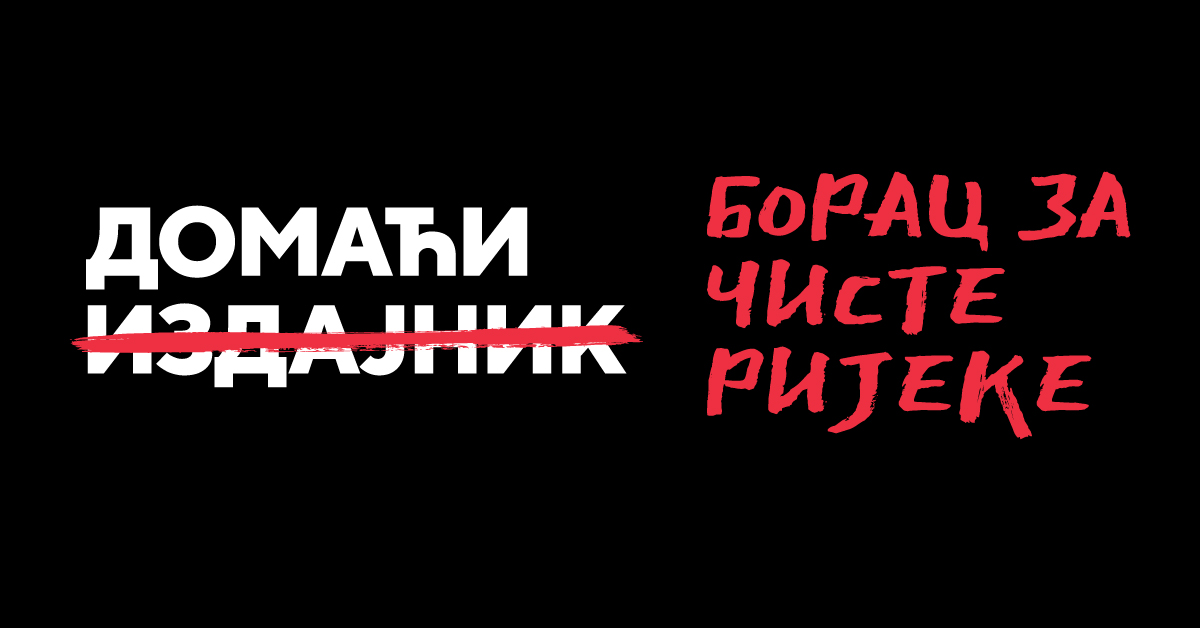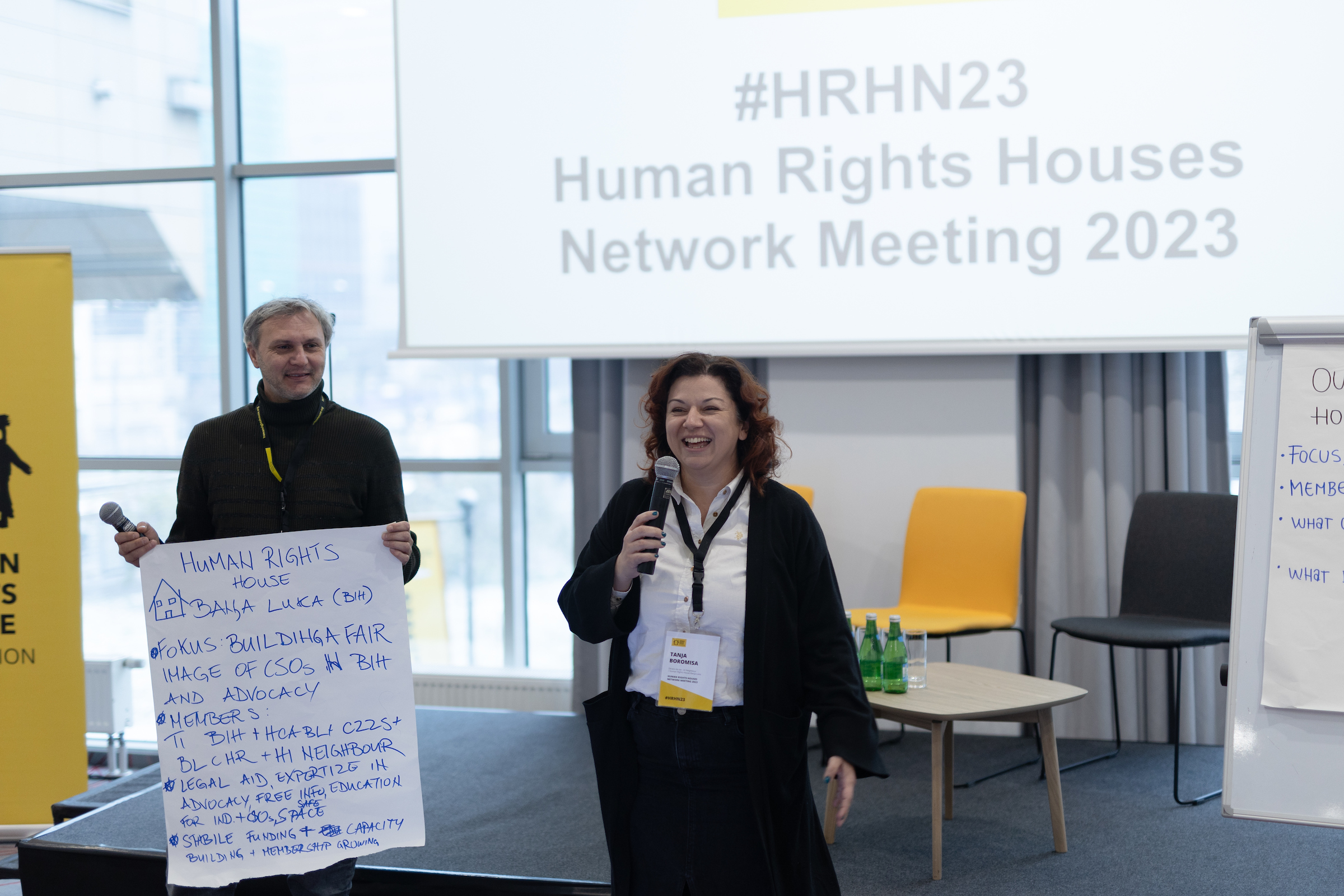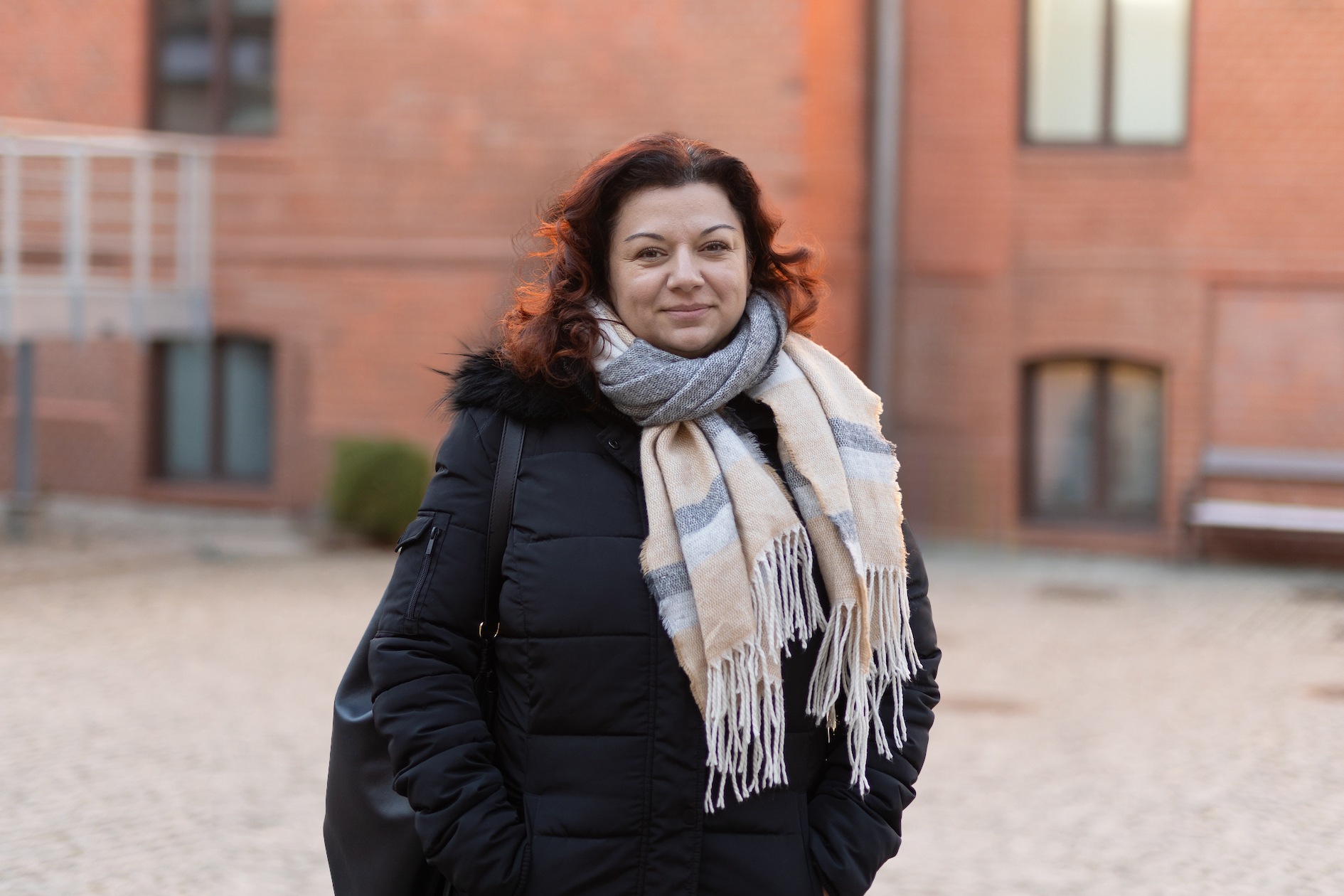Tanja Boromisa is the Executive Director of the NGO Zdravo da ste – Hi Neighbour from Bosnia and Herzegovina, working to help people in need and those who need development support. Hi Neighbour is a founding member of Human Rights House Banja Luka where Boromisa serves as the Chairperson of the board. Human Rights House Banja Luka was established in 2023, uniting five organisations: Banjaluka Centre for Human Rights, Centre for Environment, Helsinki Citizens’ Assembly, Hi Neighbour, Transparency International. All members have decades of combined experience in promoting and protecting human rights with a particular focus on the rights of women, children, whistleblowers and environmental activists.
What is the current situation for human rights in Republika Srpska?
Well, the whole situation is starting to be very serious.
On 28 September 2023, the National Assembly of Republika Srpska adopted a controversial draft law that would require non-profit organisations funded from abroad and registered in Bosnia-Herzegovina’s Serbian entity to register and report on their work.
The draft was adopted in first reading in late September. This development mobilised reaction from the local civil society as well as international actors such as the European Union, OSCE or Council of Europe’s Venice Commission who condemned the proposal and call on the Republika Srpska president and authorities to withdraw it.
We are at a crucial point. Soon we will have this ‘foreign agent’ law and this will be something that will make the whole situation worse. The definition of political activities outlined in the proposed law are so vague – it’s really a matter of who is interpreting them, and let’s say that’s not the best situation.
Human rights point to the real problems in society. While some donors understand the importance of supporting programmes with a human rights component, the society doesn’t take it very seriously and the authorities see it as problematic because everyone should conform to what the authorities are saying.
What would it mean if “Foreign Agent” legislation was adopted in Republika Srpska?
Immediately it will affect us? and be very restrictive for organisations that are registered in Republika Srpska. How the legislation will be interpreted and implemented is very vague and uncertain.
One of the biggest problems with this law is the message it sends to citizens. In our language, an NGO is called an ‘Association of Citizens’, and so the message this law would send is ‘you don’t have power to take action’.
So it would mean that the citizens would no longer have power. If this law is applied, it will put pressure on associations, stigmatise them and make it difficult for them to work, would individuals really try to claim their rights in these conditions? Would they advocate for rights after that? We are starting to be a society in which we are raised in fear, and being told ‘stay passive, don’t react’.
When it comes to the other autonomous entity of Bosnia, the Federation of Bosnia and Herzegovina, at the moment, I don’t see a movement in a restrictive direction.
However, if the “foreign agent” legislation is adopted, it would be interesting to see how it would in practice affect our colleagues from the Federation of Bosnia and Herzegovina who work in Republika Srpska. Will they be really allowed to perform their activities?

For the wider region… it could be that our situation will replicate beyond our border – maybe we are just the test model.
What role is Human Rights House Banja Luka taking in addressing these challenges?
First of all, our member organisations took the initiative, and joined by other organisations, we called on the authorities to reject this law.
Also, conducted a public awareness-raising campaign talking about the role that civil society has. I think we still have a big job to do there to inform our society what kind of effect this kind of law will truly have.
This law isn’t something that will affect only the civil society organisations, it will also have an impact on associations that don’t even consider themselves civil society organisations. It would also ultimately affect society which would be deprived of the services that organisations provide.
Human Rights House Banja Luka is the newest member of the Network. Does being connected to the international network of human rights organisations and defenders help you with the challenges you face?
Yes, you know, as an example, last week (Friday 17 November), we had a discussion where we were joined by colleagues from Georgia who presented their work in fighting similar legislation in their country. It was a great thing to hear that they successfully were able to defend themselves from this legislation.
Having colleagues that have similar experiences is very important.
What are you most proud to have achieved since the establishment of Human Rights House Banja Luka earlier this year?
I think, considering the short life of the House so far, we, the member organisations, have managed to achieve many things.
A few weeks ago, the member organisations of the House started an initiative to establish a stem cell donor registry in Republika Srpska. The general public and community and even politicians are inclined to support this topic.

We already have already one active project focused on preparing a Regional Human Rights Defenders report [Alongside alongside Human Rights Houses Belgrade, Zagreb, and the Sarajevo Open Centre]. This is equally important to all parties involved and very much needed in this context. We will present national-level reports in our countries soon.
Human Rights House Banja Luka has already received funding from different donors which will enable us to promote human rights in Banja Luka and beyond. At the same time, through activities supported by this funding, the community will get to know the member organisations of the House and we will be better prepared to host people and present our joint activities, including free legal aid for citizens.
I’m happy to say that Human Rights House Banja Luka is on track in implementing joint activities as planned and the first steps are in movement.
The member organisations of Human Rights House Banja Luka reached a point where we realised the importance of addressing broader issues, despite working on different topics for diverse target groups. We saw that issues like environmental issues and health are interconnected with human rights. Issues like nuclear waste and coal mines near the community impact people’s lives, leading to displacement.
It’s good to have a more holistic approach. It brings more equality, provides more information, and ensures a quality approach to address different issues together.
What is it like to be a human rights defender in Republika Srpska?
If you work on the freedoms of expression, movement, things like that, then we are in a deep crisis – you can’t still be in a ‘transition’ 30 years after the war.
But it can depend a bit on which topic you are touching. For example, the right to have access to proper healthcare and things like that, it’s much easier to get support from the government and the people.
But yes, we are in a deep crisis. People just feel lucky that there is no shooting over their heads. So when you’re working towards rights that are beyond the ones perceived as ‘basic’, then it’s like you are chasing the clouds.
What motivates you to continue working for human rights despite the challenges?
I work with youth and their energy is great for motivation. Also, I believe that we cannot be selective when it comes to human rights, and we must act and support all those in need. It is not a job just for human rights defenders but for everybody.
How are international standards around human rights, that have been agreed to by your state, communicated in your country?
Bosnia and Herzegovina has adopted a lot of policies and has ratified international conventions and standards, but many of them are not being implemented. The government does not pay attention to the lack of implementation of these standards, conventions and policies and civil society remains the only actor to address this issue.
Concerning the Rights of Defenders, that Human Rights House Foundation has promoted, we have used these standards to guide our work in creating the regional report. It is from there that we started to monitor some of the standards that we found current and topical to our society… standards that we are responding more to.
How was it to attend a Network meeting as the newest Human Rights House?
It was really great. It was also interesting to see that even though things seem difficult for us, we are spoiled. There are Human Rights Houses that work in much more serious situations than us.
At the same time, there are Houses with situations similar to ours. This diversity is great – to see how we are dealing with different and similar situations.
It’s interesting to hear how colleagues in Belarus and Georgia work in their situations – these insights are really valuable. But also, our situation could be interesting for others as well. Bosnia is hopefully finished with wars now, and so we have experience as civil society working after the conflict ends. So even though we are the newest House, we have something to offer also.
How important is it to work with colleagues from Human Rights Houses in Serbia and Croatia?
It definitely has a great value. We are close geographically, and historically we have been the same country before. There is closeness also in the situations that we deal with. If something happens in Croatia, it could soon happen in Bosnia and Serbia. It’s a great advantage to work with two experienced Houses with two different models operating in similar contexts.
There are several topics that are basically overlapping. It’s very close, for example in Croatia and in Bosnia, environmental activists are threatened by the authorities and the private sector. Also the right to freedom of assembly is under threat in all three countries. This is why our common work on the Regional Network’s report on the situation of human rights defenders is so important, we can give visibility to these overlapping trends.
What’s next for Human Rights House Banja Luka?
The immediate next step now will be to make an action plan for the next year. We want to publish more reports on human rights issues, we want to take a role in civic engagements.
We would like to work more with education on human rights topics within our society. To educate new human rights defenders and to tell people that you don’t necessarily need to be NGO professionals.
For human rights, right now, Bosnia is really like a Sleeping Beauty. It’s maybe not so beautiful all the time. But you can be an ordinary person ready to react and protect your own rights, or the rights of other people or even to show solidarity and things like that.





